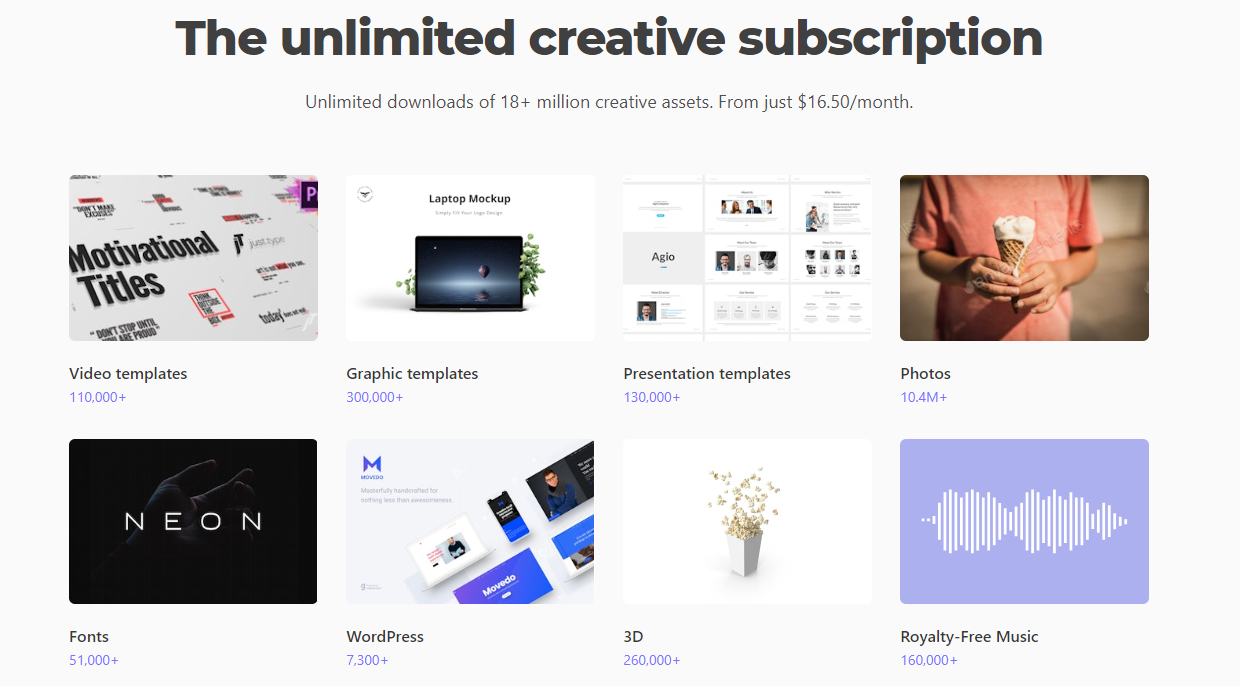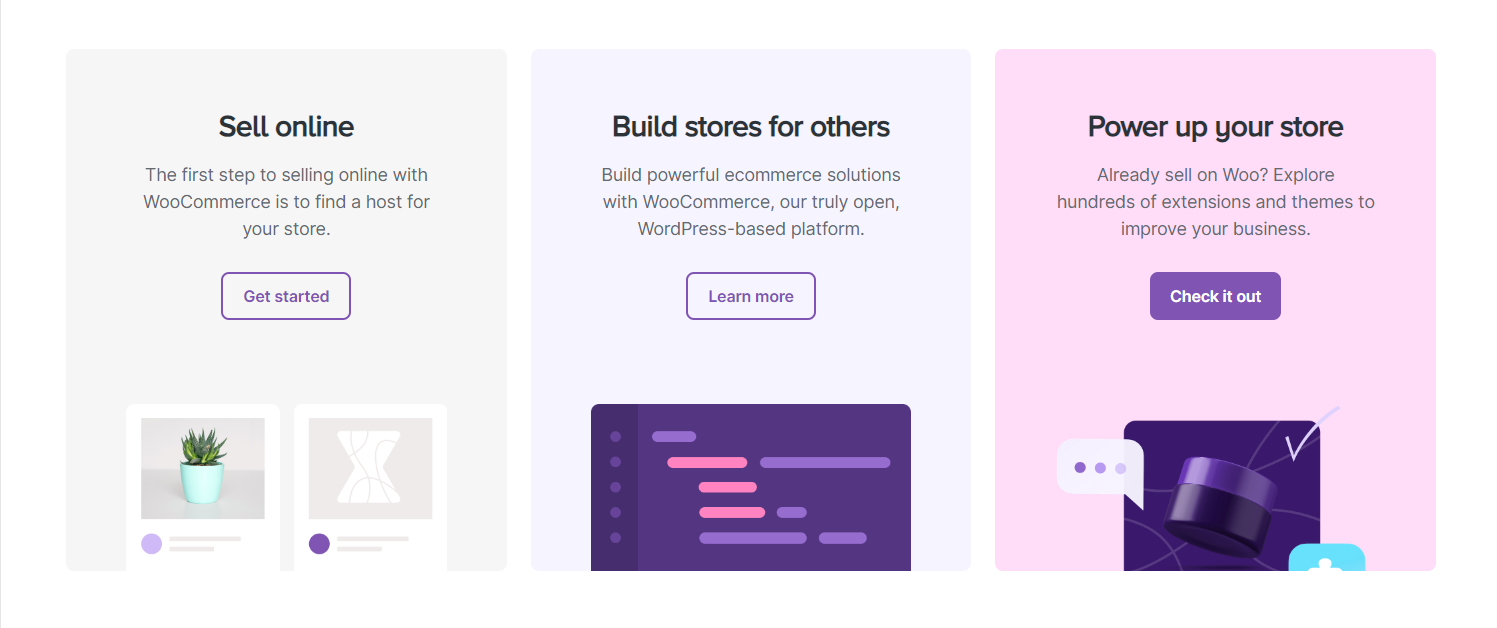|
|
On May 2, 2024, Envato — the powerhouse behind CodeCanyon, ThemeForest, and Envato Elements — announced its acquisition by stock file giant Shutterstock for a staggering US$245 million. This unexpected development comes as a surprise for the WordPress community, potentially marking the end of an era for the plugin and theme developers who’ve sold products on Envato’s platforms for over 16 years.
Product makers and users alike may be wondering how this shift will impact WordPress plugins and themes listed on Envato’s marketplaces, and whether now is the time to look for alternatives before a likely shutdown of CodeCanyon and ThemeForest.
While investigating alternatives is a logical step, the question arises: why the urgency? Can the acquisition of one company really have such a profound effect on so many within our ecosystem?
Before we dive in, we’d like to invite you to our upcoming webinar “Is This the Death of CodeCanyon and ThemeForest?” on Wednesday, 24 July 2024 at 9 AM EST for a Q&A panel that will explore the significant changes for authors who have relied on CodeCanyon and ThemeForest platforms for over a decade.
Don’t miss out 🎟️ RSVP to attend and register to receive the recording: https://freemius.com/webinars/envato-acquisition/
The Envato Empire and Why You Should Look for Alternatives
An Overview of Envato
Envato has long been a cornerstone of the WordPress plugin and theme market. It launched ThemeForest in 2008, which now has more than 12,000 WordPress themes. A year later, CodeCanyon was launched as Envato’s marketplace for code, scripts, and plugins, with a current inventory of over 5,000 WordPress plugins.
Envato offers five additional marketplaces for digital assets and themes including video, audio, graphics, photos, and 3D files.
In 2015, Envato expanded its offering with the launch of Envato Elements, an all-in-one marketplace platform that offers an unlimited subscription to assets for the growing digital creator market.

Why the Shutterstock Acquisition is Raising Concerns for WordPress Sellers
Envato currently boasts over $1 billion in total community earnings, serves over 2 million customers across its various marketplaces, and ranks high in search engine results. This mammoth footprint dwarfs all competition and is the reason why WordPress product makers have stuck with them.
So why might ThemeForest and CodeCanyon be facing a potential shutdown?
In short: Envato’s chief interest is not software products but digital assets: The company’s roots are in graphic design. Software products only became part of its offerings down the line. It started in 2006 as a marketplace for selling flash designs. WordPress themes were included two years later and plugins followed the year after.
Shutterstock’s main priority isn’t software, either. They sell stock files and focus on digital creators.
As this article by WP BizDev points out: “…you need to get to the end of the [Envato] press release to find a mention of WordPress” where a strategic highlight says the acquisition:
“Further diversifies Shutterstock into new content types including code & web themes, product mock-ups, fonts and templates (e.g. Slides, Powerpoint, Keynote, WordPress, video, designs for social posts, gaming, podcasts and print-on-demand).”
James Giroux — former WordPress Evangelist at Envato — has been in the WP ecosystem for over 15 years. He published this insightful article about the acquisition and what it could mean for WordPress sellers.
I recommend reading the piece to understand the implications, but this passage sums it up well:
“It is quite telling, however, that even in their press release, Shutterstock didn’t capitalize the “P” in WordPress. Code is not a core strength of Shutterstock. With the gutting of Envato’s author-focused department having already taken place, there are very few voices left within the company who can advocate on behalf of WordPress authors.
With a new management team taking over that is unfamiliar with the storied history of Envato and its relationship to WordPress, it’s unlikely that the needs of code-based authors and code-based products will be considered.”
James says immediate changes to Envato’s structure are unlikely. Even so, the acquisition isn’t the only reason to seek alternatives.
The Problems With Envato’s Marketplaces and Envato Elements
Envato is notorious for undercutting sellers.
- The company charges very high commissions. Exclusive sellers are billed between 12.5% – 37.5% (tiered according to lifetime earnings) while non-exclusive sellers are slapped with a whopping 55% flat fee. On top of that, there’s an additional Buyer Fee of $4 to $12 for plugins and themes.
- To add insult to injury, sellers need to pay withholding tax that can be as high as 30% for countries that don’t have tax treaties with Australia.
- Envato’s lack of subscriptions for selling products poses a significant issue for software developers. It locks them into providing ongoing updates and support to customers who paid a once-off price for their plugin or theme. This is not a problem for static items like photos that don’t require continuous maintenance.
- While it has a massive customer base, Envato doesn’t market sellers’ products.
- Only elite-level sellers who’ve sold over $75k worth of products (according to sources published in 2020) get access to Google Analytics for their seller profile, which would then allow them to “add UTM parameters to marketing campaigns and see what is actually converting”.
- The advent of Envato Elements has shortchanged marketplace sellers even more. Subscriptions starting at $16.50 /month allow users to download unlimited inventory at a price lower than many individual plugins or themes.
The writing’s on the wall: It’s a good time for WordPress plugin and theme sellers to start looking for Envato alternatives.
But what criteria should you use to inform your choice?
Subscribe and grab a free copy of our WordPress Plugin Business Book
Exactly how to create a prosperous WordPress plugin business in the subscription economy.

Factors to Consider When Choosing an Envato Alternative
Popularity and Reach
As mentioned, this is the main reason WordPress product makers opt for Envato.
Popularity and reach directly impact product exposure. A platform with a large user base and high traffic increases the likelihood of potential customers discovering your plugin or theme.
Commission Rates and Pricing Structure
👆 The first area where Envato fails WordPress plugin and theme developers.
It’s essential to evaluate the sales percentage an Envato alternative takes as commission and to determine any additional transaction fees. A transparent pricing structure allows you to accurately calculate earnings per product.
On that note, heed the following:
- If the platform doesn’t allow you to sell monthly or annual subscriptions for software updates and support, it’s a major red flag❗❗❗ You’ll be left with a pool of customers who’ll demand free updates and support for life.
- Many marketplaces try to lock product makers in by imposing high commissions on non-exclusive sellers.
Handling of Administrative Tasks
Taking care of this yourself is a big pain in the ass time-consuming affair.
An Envato alternative that handles invoicing, reporting, and other admin alleviates this headache, allowing you to focus on making awesome products.
Marketing Support and Efforts
Marketing significantly impacts the visibility of your products, which leads to more 💰
Determine whether the Envato alternative offers exposure through marketing channels like email newsletters or social media ads.
Investment in Software Products and WordPress
Does the platform care about plugins and themes (and developers)? Is it invested in the WordPress ecosystem?
An Envato alternative’s commitment to software influences the quality of the platform + help that’s available to product makers. This is demonstrated by regular updates and improvements as well as dedicated resources and support for software developers.
Additional Features like Sales and Analytics Dashboards
Access to sales and analytics dashboards provides valuable insights into your audience, sales performance, and product effectiveness.
Look for alternative marketplaces that offer comprehensive analytics tools providing data on sales trends, customer demographics, and conversion rates.
These insights enable you to refine your marketing strategy and optimize your offering for success over time.
Top 5 WordPress Marketplace Alternatives
TemplateMonster

TemplateMonster offers a wide range of website templates, themes, and other digital assets for various platforms, including WordPress. It provides pre-designed WordPress themes to help developers and businesses create professional websites quickly and affordably.
Pros:
- More than 2 million monthly visitors.
Cons:
- Doesn’t offer analytics or insights about sales and customer behavior.
- No marketing efforts or exposure for product makers. It does offer something called a Product Booster, which entails developers paying 10-25% of their commission to get better rankings in TemplateMonster’s Trending list.
- Exclusive authors receive 50-65% commission while non-exclusive ones receive only 40%.
WooCommerce Marketplace

WooCommerce’s marketplace supports a subscription model and primarily offers extensions over themes.
Pros:
- Has a subscription model for updates and support.
- The marketplace is accessible through the WP Admin Dashboard with the WooCommerce plugin installed. It benefits sellers by giving their extensions more exposure and allowing users to browse the store without leaving the WP Admin Dashboard.
Cons:
- Doesn’t offer analytics or insights about sales.
- Doesn’t make an effort to market or expose sellers’ products. However, it does receive a lot of traffic from Google.
Creative Market

Creative Market — much like Envato — is more design-centric than software-oriented and while there are some plugins sold on the marketplace, it mostly focuses on themes.
The listed themes are good quality, but it’s apparent that the dominant target markets are bloggers and lifestyle-centric entrepreneurs (who are focused on fashion and the like). There are also business themes available for organizations like property rental agencies, law firms, and bands.
Pros:
- According to Creative Market’s “Open a Shop” page, it gives vendors access to stats, allows them to interact with customers, and provides a messaging system for handling support.
- Doesn’t demand or enforce product exclusivity.
Cons:
- According to Creative Market, they make an effort to market all of their sellers through email newsletters, their homepage, “free goods of the week”, blog posts, curated finds, staff picks, and social media. However, no explicit mention is made about whether they have any processes in place to give exposure to your product specifically. You can, however, market your products through “Shop Updates”.
AppSumo

AppSumo offers Lifetime Deals (LTDs) and annual deals on digital products like social media tools, creative assets, and WordPress software to the B2B market. It’s an effective platform for new developers to get a foot in the door and for established businesses to test new products.
If you’re considering AppSumo as an Envato alternative, you can take a look at this article about a Freemius partner’s experience of selling on the AppSumo marketplace. It covers the pros and cons + ins-and-outs of setting up a successful deal.
Pros:
- Access to user reviews, which is useful for understanding how to improve your product(s).
- Related to the above, the AppSumo community is full of passionate business owners who can offer valuable advice and feedback to help create appealing deals and improve your product, benefiting both you and the audience.
Cons:
- AppSumo will give you marketing exposure, but this is tiered according to how many 4-star (or 4+ taco) reviews your product gets. Driving those first customers to your products is up to you.
- While a Lifetime Deal is a good way to attract many customers to a new product quickly, there is a downfall: you’ll be left with a slew of customers who are entitled to lifetime updates and support.
Elegant Marketplace

Elegant Marketplace is focused on both WordPress and Divi websites. It offers a selection of Divi extensions, child themes, WordPress plugins, and layouts.
Pros:
- Affiliated with Divi, which is useful for product makers operating in that niche.
Cons:
- Doesn’t offer analytics or insights about sales and customer behavior.
- No indication that it makes an effort to market or expose products.
- Doesn’t demand product exclusivity. However, upon listing a product, developers agree that:
- Their product will be listed for a minimum of twelve months.
- Elegant Marketplace reserves the right to price match should the product be listed on other stores.
- Has a 50/50 commission split.
The Trouble with WordPress Marketplaces as Envato Alternatives
WordPress marketplaces like Envato have long served as primary platforms for selling plugins and themes, yet they present several challenges.
Similar to Envato, many WordPress marketplaces impose high commission rates on sellers.
Moreover, these marketplaces often lack basic sales analytics tools, depriving sellers of valuable insights into sales performance and customer demographics.
While marketplace size suggests potential exposure and marketing opportunities, these efforts typically favor already popular products, leaving sellers to drive traffic to their listings, which can be particularly challenging for newcomers. This overcrowded marketplace landscape exacerbates the struggle for new products to gain attention and necessitates proactive marketing efforts from sellers.
Approval processes are also strict, negatively affecting product visibility and traction, even after meeting standards.
However, there is a solution that mitigates many of these marketplace challenges for WordPress product makers.
Consider a Merchant of Record like Freemius as an Envato Alternative
Instead of relying on marketplaces for selling plugins and themes, many WordPress product makers are taking matters into their own hands by setting up online shops and enlisting a merchant of record to oversee the regulatory affairs on their behalf.
A merchant of record (MoR) is responsible for handling the financial and legal aspects of selling digital products, including processing payments, managing tax compliance, generating invoices, and billing.
By acting as the seller on record, an MoR ensures that all administrative tasks and regulatory requirements are met on behalf of product makers.

Freemius serves as an MoR, offering an all-in-one SaaS platform designed to support WordPress developers in selling, distributing, and marketing their products.
Our Developer Dashboard empowers sellers to manage their online stores efficiently, handling payment processing, licensing, software updates, and customer support. With built-in analytics and insights, sellers gain valuable understanding of user interactions, while our deactivation feedback form provides insights into abandoned products, helping sellers address concerns and maintain relevance.
We prioritize user feedback and consistently enhance our platform to meet evolving needs. Our release notes keep sellers appraised about the latest updates and improvements. Check out this recent release note about our new state-of-the-art sales analytics and multi-store dashboard, which is equipped with a host of useful metrics and functionalities.
As an MoR, we also take care of US Sales Tax and EU VAT on your behalf.
Moreover, unlike commission-based models, Freemius operates on a transparent revenue-sharing structure. We charge 7% on all earnings after crossing the $5k line in lifetime sales. This ensures a direct alignment of success between us and our users, creating a collaborative environment where your business and products can thrive.
Concerned about making the shift from Envato to Freemius? Fear not! We’ve documented robust processes to migrate from ThemeForest and CodeCanyon to our platform.
As a testament to our effectiveness as an Envato alternative, you can check out this video about why Stylemix decided to start selling plugins with Freemius. In March 2020, the company lost 30% of their revenue on ThemeForest amid a traffic decline. Utilizing analytics from our Developer Dashboard has greatly aided them in understanding the current potential of their products and what to build next.
Similarly, Xavier Birsak from Mailster recently started selling his plugin with Freemius because of declining sales and frustrations over Envato’s lack of a subscriptions model.
If you’re not 100% ready to move away from Envato, that’s perfectly fine too 🙂 Freemius has helped many Envato sellers to expand their reach beyond ThemeForest and/or CodeCanyon.
With the end of ThemeForest and CodeCanyon (potentially) in sight, could the WordPress market be on the brink of a new era?
Don’t Fear the Change
WordPress is synonymous with innovation. If things don’t move forward, the ecosystem many rely on for running websites and making a living will stagnate.
While marketplaces have played a vital role in driving traction and exposure for WordPress products, the landscape is evolving. The time is ripe for a market shift where more WordPress product makers partner with MoRs that help them become better entrepreneurs.
If you’d like to find out more about making the shift from a marketplace, please get in touch with us at [email protected].









